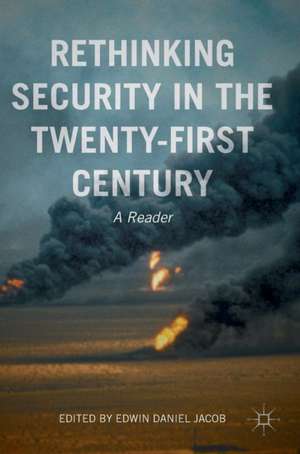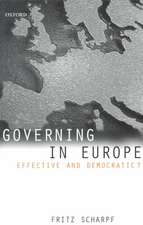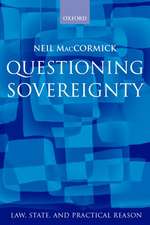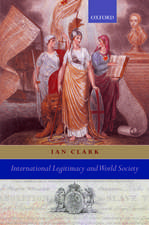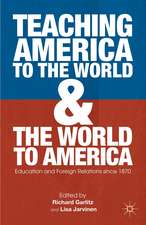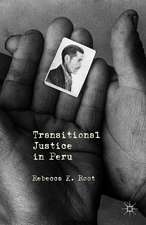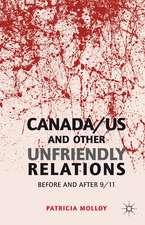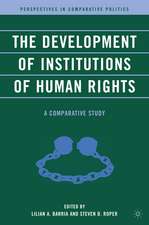Rethinking Security in the Twenty-First Century: A Reader
Editat de Edwin Daniel Jacoben Limba Engleză Hardback – 13 dec 2016
Preț: 1104.87 lei
Preț vechi: 1347.40 lei
-18% Nou
Puncte Express: 1657
Preț estimativ în valută:
211.60€ • 218.01$ • 177.26£
211.60€ • 218.01$ • 177.26£
Carte tipărită la comandă
Livrare economică 22 februarie-08 martie
Preluare comenzi: 021 569.72.76
Specificații
ISBN-13: 9781137525413
ISBN-10: 113752541X
Pagini: 224
Ilustrații: XXXIII, 305 p.
Dimensiuni: 148 x 210 x 24 mm
Greutate: 0.57 kg
Ediția:1st ed. 2017
Editura: Palgrave Macmillan US
Colecția Palgrave Macmillan
Locul publicării:New York, United States
ISBN-10: 113752541X
Pagini: 224
Ilustrații: XXXIII, 305 p.
Dimensiuni: 148 x 210 x 24 mm
Greutate: 0.57 kg
Ediția:1st ed. 2017
Editura: Palgrave Macmillan US
Colecția Palgrave Macmillan
Locul publicării:New York, United States
Cuprins
Introduction .- 1. Security and Ideology .- 2. Who Really Defines National Security?. - 3. Anachronistic Research in International Relations and Security Studies .- 4. The American Nuclear Warfare State .- 5. A New Frontier in US National Security Policymaking: State and Local Governments .- 6. Imperial Hubris and the Security of the Middle East, 1979-2016 .- 7. Sovereignty and Security: 9/11, the Arab Spring and ISIS .- 8. Protection from Whom? R2P in the US and UN .- 9. Fostering Global Security .- 10. Mainstreaming Atrocity .- 11. Democracy and Stability? US Foreign Policy Post Arab Spring .- 12. Human Mobility and Security .- 13. Ecological Security .- 14. Legality of the Modern Modes of Warfare: The Case of Drones .- 15. Duties to Defend: Ethical Challenges of Cyber Defense .- State Security, Human Security, and the Problem of False Complementarity .- 17. Victim Mentality and Violence: Anatomy of a Relationship .- 18. Rethinking Security Education .- 19. Neoconservatism: A Death Prematurely Foretold?.
Notă biografică
Edwin Daniel Jacob is a doctoral candidate of Global Affairs at Rutgers University, USA. He serves as the New Media Coordinator at the Center for the Study of Genocide and Human Rights. An interdisciplinary background in political theory, international relations, and history informs his focus on American homeland security and foreign policy.
Textul de pe ultima copertă
This edited volume helps bridge the elusive gap between theory and practice in dealing with the issue of “security” broadly conceived. A quarter of a century has passed since the crumbling of the Berlin Wall. Yet our notions of security remain mired in Cold War thinking whose realist ethos is predicated on holding the nation state’s power, interests, and survival as the guiding unit of analysis in international relations. Security is ever changing. Confronting new dangers to the individual, the state, and the international order calls for new categories that speak to the new influence of globalization, international institutions, and transnational threats. Composed of original essays by a cosmopolitan mix of leading figures inside and outside the academy, this book proves relevant to any number of classes and courses, and its controversial character makes it all the more necessary and appealing.
Caracteristici
Offers a critical and political examination of security that bridges the elusive gaps between theory and practice Composed of original essays by a cosmopolitan mix of leading figures inside and outside the academy Has cross-regional ramifications and appeal to both American and international security scholars
